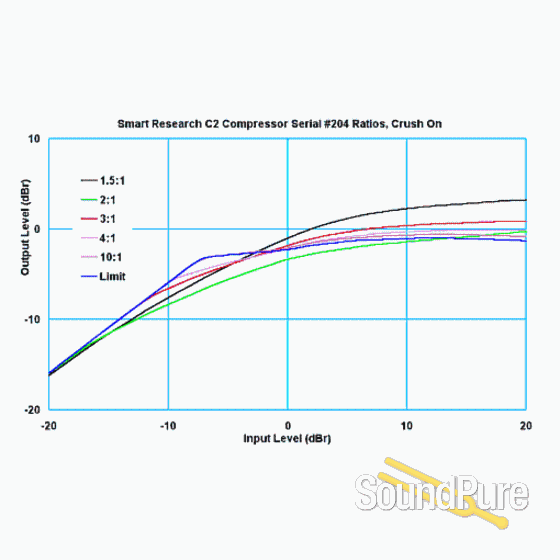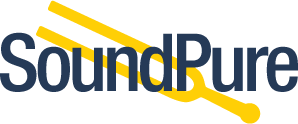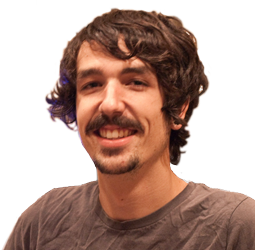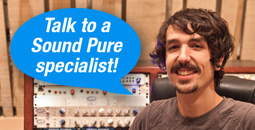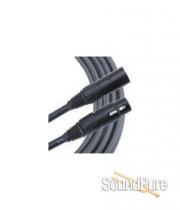-
Call Us Toll Free888-528-9703
-
Local/International (+1)919-682-5552
- Call Us! Toll Free! 888-528-9703
- Local / International (+1) 919-682-5552

Alan Smart C1 Dual/Stereo Compressor From Alan Smart
Original black front panel version of C2 compressor. (Two sets of controls and two audio channels, but no sidechain inputs, or crush facility). Popular in UK and US west coast studios.
$2,345.00
Retail: $2,500.00
"Experience the Difference"
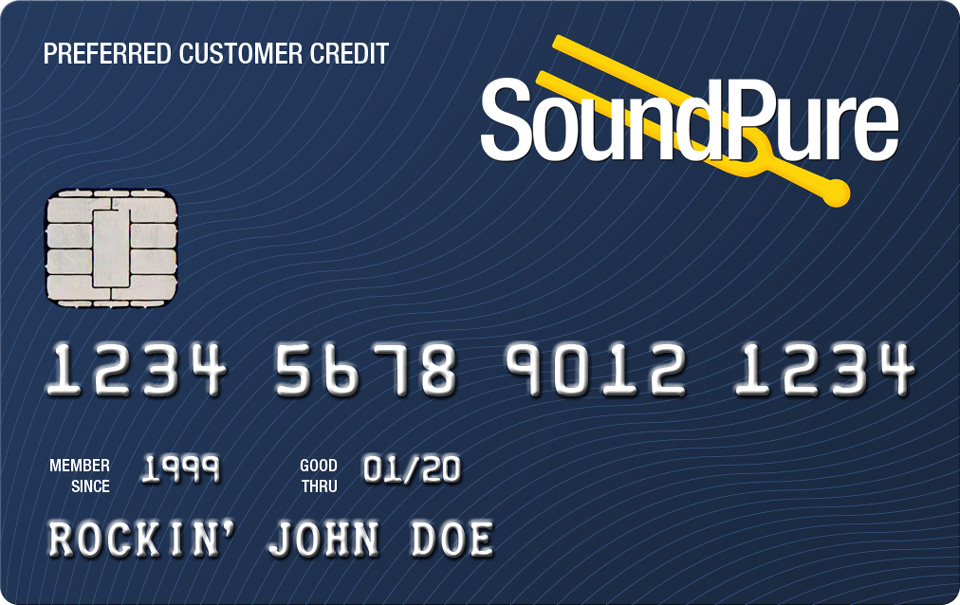 Payments as low as $53/mo.
Payments as low as $53/mo.
Manufacturer's Description from Alan Smart
The C2 compressor houses two independant mono compressors, or in STEREO mode, the left-hand controls operate both audio channels, with the right-hand controls not used, giving true Stereo operation. The C2M version has one set of controls and two audio channels for Stereo use, whilst the C2R is a dual channel remote expander for building up to 8 channel systems controlled from one C2M or C2.
The characteristic sound of this unit arises mostly from the fast response at the onset of compression, which when delayed to occur around the mid range attack settings (after 0.3 to 3 milliseconds) results in a window through which transients can still pass. When used accross a mix, or with any dynamic programme, this has the effect of adding 'punch', as the sidechain 'breathes' around these transients, while still controlling overall levels. CRUSH mode has been developed as an extension of this 'musicality', adding to and accentuating the factors involved in producing the character of the unit. CRUSH may sound surprising to those interested in more gentle applications, being capable of exaggerated compression effects, but in conjunction with the fast limit settings also introduced with this unit, it allows the C2 to be used for a much wider range of applications than the C1.
Operation:
- Fast attack and limit settings for protective limiting.
- Crush mode gives f.e.t 'overcompression' with tailored frequency response, and higher distortion, for 'huge' dynamic effects.
- External sidechain inputs, (for ducking etc.)
- Power fail bypass for broadcast or live sound.
- Ratios 1.5:1, 2:1, 3:1, 4:1, 10:1 and Limit.
- Attack 0, 0.1, 0.3, 1, 3, 10, and 30 m/sec.
- Release 0.1, 0.3, 0.6, 1.2, and 2.4 seconds.
Circuitry:
- New generation of Voltage Controlled Amplifiers.
- High slew rate amplifiers, with hybrid f.e.t/ transistor inputs (Analog Devices).
- High current push-pull transistor outputs.
- Total symmetry throughout signal path.
- No electrolytic capacitors used in main signal path.
- All inputs and outputs balanced.
Options: (Special Order)
- External fader level control input (stereo mastering etc).
- Extra dual channel slave units, for multichannel applications, (film / surround formats etc.).
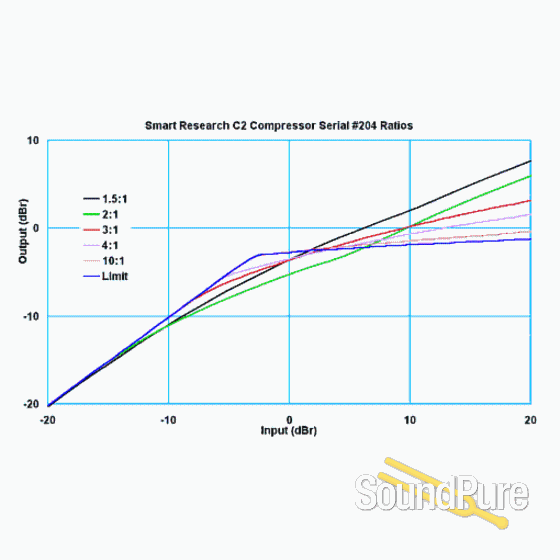
About Manufacturer
Originally formed by Alan Smart for the development of high performance audio equipment. He has worked in the professional audio industry for some 20 years since starting as an assistant engineer in Wave Studios in London, and then as an electronics engineer at Digital Audio Systems, who provided Sony PCM mastering systems to UK studios; manufactured Weber test tapes, and restored and extended several Neve consoles and other equipment. Engineering at SSL's 'Huge' studios in Oxford led to a position as commissioning and service engineer for SSL. His first assignment abroad was to commission George Benson's SSL at Lahaina Sound in Hawaii, after which he went on to either service or commission many of the rapidly expanding collection of SSL Studios such as Virgin's Townhouse 1 and 2; Sarm West; Wessex; Abbey Road; Air Studios and others. Experience with broadcast studios came at the UK's BBC, Denmark Radio, and Japan's NHK, and travel for SSL included visiting Holland, France, Germany, Denmark, Italy, Japan, South Korea, the West Indies and the USA. This period involved solving the problems at each new installation, as SSL moved to from around 25 console sales, to become a world standard .
Alan left SSL to become chief engineer at Eddy Grant's Blue Wave Studios in Barbados, where he engineered an album; singles and film music for Eddy Grant, working with two Otari MTR90's and a Synclavier system. He took care of maintenance and ran the studio for projects such as Sting's first solo project 'Dream of the Blue Turtles'; and expanded the studio's facilities to allow for video sync and midi distribution. During this time many artists visited Blue Wave including the Thompson Twins, Bryan Ferry, Jon Anderson, and Mick Jagger.
Returning to the UK in 1984, freelance projects included work for many artists and studios. After engineering various projects for Peter Gabriel, Paul McCartney, and others (such as Joni Mitchell's 'Chalk Marks in a Rainstorm') at Peter Gabriel's earlier studio, Ashcombe; he then became involved in the planning and construction of Real World Studios. This involved 3 Studios, and numerous custom electronic projects; such as modifying the main control room SSL to allow status changing and metering in groups of 8 modules; and 64 split group outputs. Alan also designed the 'ASM' system for Real World, increasing the SSL's capacity from 5 to 9 automated cue sends per module. (This system was later sold to several studios, Rhinoceros in Sydney amongst others). While working with Real World, Alan designed and travelled with Gabriel's 'So' world tour stage system, and more recently the 'Secret World' tour. The latter involved the establishment of two complete music equipment systems, linked with custom built midi-automated switching and level control, multicores, line drivers, and used some 35 radio frequencies, and also involved extensive live recording of both midi and audio; an offshoot of the tour which he followed through to help in post production and mixing at Guillaume Tell in Paris.
The challenges of spending years involved with touring have otherwise proven avoidable; with the exception of Tears for Fear's 'Seeds of Love' tour, for which he designed and built 48 channels of preamplifiers/splitters to allow the isolation and on-line fault finding of all audio from the stage; as well as a stage radio foldback system for the two principles, at a time when commercially available systems were tested and found too unreliable to use.
Complete studio designs have included a 56 channel SSL/ 96 tape track capable mitsubushi equipped facility, Neptune's Kitchen, for private use; studios for Jamiroquai and others, and custom electronic solutions for projects such as Virgin's 144 microphone input Manor Mobile; the Manor Studios, Matrix's Maison Rouge mix room facility and many others. In 1987, The Engine Room began business custom building Studio equipment, and since then has established a client list we hope will be enhanced by its evolution into Smart Research into the future.
Currently Smart Research have facilities in England and Australia.
Specifications
- Power:100v-240v AC selectable, 30 watts.
- Noise floor:Below -92 dBm (flat 20Hz-20Khz).
- Distortion:Below 0.025% (1K/+4 THD 20Hz-20Khz)
- Frq. Response:Within 1/2dB from 20Hz to 20Khz.
- Depth in rack:240mm.
- Main input:Balanced, impedance 10K per leg.
- Output:Unbalanced (p2 hot default). Above +21dBm.
- Threshold:Adjustable -15 to +15dBm.
- Make-up gain:Adjustable 0 to +15dBm.
